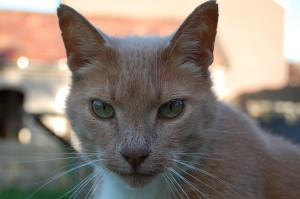PvdD-plan voor registratie huisdieren op komst
Eén Europees systeem waarin honden, katten en andere huisdieren in Europa verplicht geregistreerd moeten worden lijkt op komst. Het Europees Parlement steunde een voorstel van de Partij voor de Dieren om bestaande databanken uit verschillende EU-landen beter op elkaar te laten aansluiten. Dit moet de aanpak van illegale handel in puppy’s en andere huisdieren vergemakkelijken.

“Uit diverse onderzoeken blijkt dat de illegale handel in huisdieren in Europa drastisch is toegenomen. Dat leidt tot grote welzijnsproblemen. Dieren worden te snel weggehaald bij hun moeder, niet gevaccineerd en onder slechte omstandigheden vervoerd. Ze vertonen daardoor gedragsproblemen, worden ziek en sterven vaak op jonge leeftijd. Dat is niet alleen slecht voor het dier, maar kan ook een gevaar zijn voor de gezondheid van het baasje,” aldus Europarlementariër Anja Hazekamp.
Traceerbaarheid
Veel EU-landen registreren momenteel al informatie over dieren. Maar het is nog moeilijk om in het ene land informatie op te vragen van een dier dat in een ander land geregistreerd is. “Dieren die de grens passeren zijn hierdoor vaak niet goed traceerbaar,” zegt Hazekamp. “Informatie over bijvoorbeeld de herkomst, leeftijd en inentingen die een huisdier heeft gehad moet altijd voorhanden zijn. Ook bij huisdieren die afkomstig zijn uit een ander land. Dat maakt het moeilijker voor criminelen om documenten te vervalsen en kan helpen in de bestrijding van illegale huisdierenhandel,” stelt Hazekamp.
De Europese Commissie heeft aangegeven positief te staan tegenover een Europees registratiesysteem. Zij heeft de bevoegdheid om het plan daadwerkelijk in te voeren.
One single European system for the compulsory registration of dogs, cats and other pets in Europe seems imminent. The Party for the Animals’ proposal to better link the existing databases in different EU countries was backed by the European Parliament. This should make it easier to tackle the illegal trade in puppies and other pets.

“Various investigations have shown that the illegal trade in pets across Europe has drastically increased. This leads to great welfare problems. Young animals are taken from their mother too young, are not getting vaccinated and are transported under bad circumstances. They display behavioural problems, become ill and often die at a young age as a result. This is not only bad for the pet, but can also affect the health of its owner,” according to MEP Anja Hazekamp.
Traceability
Many EU countries are already registering information on pets. But it is still complicated to obtain information on a pet that is registered in a different country. “Animals that cross the border are often hard to trace as a result,” says Hazekamp. “Information on, for example, the origin, the age and the vaccinations given to a pet must always be at hand. Also if the pets come from a different country. This will make it more difficult for criminals to falsify documents and can help to fight the illegal trade of pets,” says Hazekamp.
The European Commission has indicated that it is in favour of such European registration system. It has the authority to actually implement the plan.